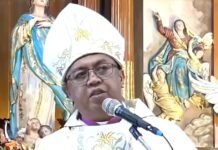“We have all agreed that the time for…politics has ended. The time has come for action….” – Bail Organa (Star Wars)
Though the words quoted above were from a totally different context, this publication is sure that most of us have the same thought in mind. Indeed, the time for heated debates, colorful promises and other election-related drama has ended. Right now, to borrow the words from an article published by Inquirer.Net last May 21, 2022: people are in a “wait-and-see mode”. Though these words were directed to presumptive president-elect Bong Bong Marcos, one can’t help but apply these words to the other officials who won the votes of the Filipino people.
Former senator Bong Bong Marcos who is at this point just waiting for formalities promised unity above all, believing it to be the solution to first and foremost get through the pandemic. But what really caught people’s attention was his promise to lower o bring down the price of rice to as low as P20 to P30 per kilo.
To some like KMP national chair Danilo Ramos and Albay Rep. Joey Salceda the idea is impossible or even as preposterous as Duterte’s “zero crime” promise which he said way back in 2016. But the former also added that maybe Marcos was just misquoted. The only true way to know for sure is once the Marcos administration begins. According to an analyst, outlandish as it may seem to lawmakers or agriculturists, these kinds of promises are those that stick with the general public, which could have contributed to the overwhelming number of votes Marcos received.
This seems to be true as we saw Robin Padilla – another candidate who promised to lower the price of a commodity – beat 11 other hopefuls for the top spot in the senatorial race. In his case, he promised to lower the price of gasoline by setting up a ‘pambansang gasolinahan’ which according to him will be made possible by tax exemptions. While this is music to the ears of the common folk, there are those who say that, like the previous promise it might do more harm than good.
“Exempting fuel from taxes will require legislation that will have to pass through Congress and be approved by the president.” According to Angelica Y. Yang of Philstar.com. In addition to this: “While that might mean lower pump prices, that would be a blow to the government revenues.”
As comforting as promises like that would seem, it is clear that there are many obstacles to go through before they can be enjoyed by the Filipino people. In the months to come we will see if the proprietor of said promises can actually walk the talk and lessen, ease or even remove the burden of the Filipino people. (EDITORIAL #34/VIA JAKE S. TERRAGO)



























